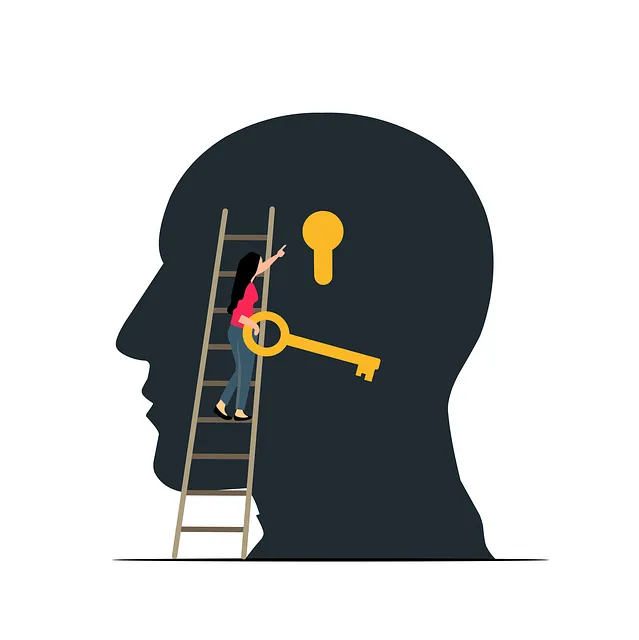The Arvada Kaiser Permanente mental health center focuses on holistic emotion regulation through evidence-based programs. By combining mindfulness, cognitive reframing, physical techniques, and behavioral strategies, the center equips individuals with tools to manage stress, overcome challenges, and enhance positive thinking. These tailored interventions empower clients to navigate their emotional landscapes effectively, fostering resilience and improving life satisfaction. Through integration into daily routines, these strategies significantly boost emotional regulation capabilities, leading to better mental wellness outcomes at the Arvada Kaiser Permanente mental health center.
At Arvada Kaiser Permanente, we delve into the foundational aspects of mental well-being through emotion regulation techniques teaching. Understanding and managing emotions effectively is key to a vibrant, balanced life. This article explores various strategies, from mindfulness practices and cognitive reframing to physical and behavioral approaches, designed to empower individuals at our leading mental health center. By integrating these techniques, you can build resilience and develop long-term skills for navigating daily emotional challenges.
- Understanding Emotion Regulation: The Foundation of Mental Well-being at Arvada Kaiser Permanente
- Techniques for Awareness and Mindfulness: A Cornerstone of Effective Regulation
- Cognitive Strategies: Reframing Thoughts to Manage Emotions
- Physical and Behavioral Approaches: Unleashing the Body's Role in Emotional Balance
- Building Resilience: Long-term Emotion Regulation Skills for Daily Life
Understanding Emotion Regulation: The Foundation of Mental Well-being at Arvada Kaiser Permanente

At Arvada Kaiser Permanente mental health center, understanding emotion regulation is recognized as the cornerstone for cultivating and maintaining mental well-being. Emotion regulation techniques teaching plays a pivotal role in empowering individuals to navigate their emotional landscapes effectively, thereby fostering resilience and enhancing overall life satisfaction. Through evidence-based practices and tailored interventions, the center offers a range of programs designed to develop mental wellness coaching skills.
These programs delve into the nuances of positive thinking and mind over matter principles, equipping individuals with strategies to manage stress, overcome challenges, and cultivate a more balanced emotional state. By integrating these techniques into daily life, participants at Arvada Kaiser Permanente can significantly improve their ability to regulate emotions, leading to better mental wellness outcomes.
Techniques for Awareness and Mindfulness: A Cornerstone of Effective Regulation

At the Arvada Kaiser Permanente mental health center, a cornerstone of effective emotion regulation lies in cultivating awareness and mindfulness. This involves learning to recognize and acknowledge one’s emotions without judgment. By focusing on the present moment, individuals can gain valuable insights into their emotional triggers and patterns, enabling them to make conscious choices in managing their responses. Mindfulness practices, such as meditation and deep breathing exercises, are powerful tools that help to calm the mind and reduce stress, allowing for better decision-making under pressure.
Techniques for awareness and mindfulness also foster empathy building strategies, which are crucial for maintaining mental wellness. By understanding one’s own emotions, individuals can more effectively comprehend and empathize with others, leading to stronger relationships and improved social connections. These skills are particularly beneficial in navigating challenging situations, whether at home or in the workplace, ultimately promoting a sense of equilibrium and resilience in the face of life’s ups and downs.
Cognitive Strategies: Reframing Thoughts to Manage Emotions

At the Arvada Kaiser Permanente mental health center, cognitive strategies like reframing thoughts are taught as a powerful tool for emotion regulation. This involves identifying and challenging negative or distorted thinking patterns that contribute to intense emotions. For instance, if someone feels overwhelmed by stress, they might reframe their thought from “I’m completely stressed out and can’t handle anything” to “This is a momentary challenge, and I have successfully navigated difficult situations before.” Such a shift in perspective empowers individuals to manage their emotions more effectively.
Through cognitive reframing, patients learn to replace negative thoughts with more realistic and positive ones, thereby enhancing their mood management skills. This technique not only helps in the short term but also contributes to long-term stress management by building resilience against emotional turmoil. It’s a valuable skill that mental health professionals can teach, especially during risk assessments, to ensure individuals have tools to navigate their emotions in healthy ways.
Physical and Behavioral Approaches: Unleashing the Body's Role in Emotional Balance

At the Arvada Kaiser Permanente mental health center, we explore physical and behavioral approaches as powerful tools for achieving emotional balance. Understanding that our bodies are intricately linked to our emotions, these techniques focus on releasing tension and promoting relaxation through movement and sensory experiences. Activities such as yoga, deep breathing exercises, and progressive muscle relaxation are proven methods to activate the body’s natural stress response systems, helping individuals gain greater control over their emotional reactions.
By incorporating these practices into daily routines, individuals can enhance their emotional well-being promotion techniques, improve their mental wellness coaching programs development, and cultivate a deeper sense of emotional intelligence. These physical and behavioral approaches serve as valuable allies in navigating life’s challenges, offering practical strategies for managing stress and cultivating a state of inner calm.
Building Resilience: Long-term Emotion Regulation Skills for Daily Life

At the Arvada Kaiser Permanente mental health center, we understand that building resilience is key to long-term emotional regulation skills. Our approach focuses on equipping individuals with practical tools to navigate life’s challenges, ensuring they can effectively manage stress and anxiety in their daily routines. By teaching evidence-based strategies, such as mindfulness techniques and cognitive behavioral therapy, our experts help clients develop a stronger sense of control over their emotions.
This proactive approach to emotional regulation isn’t just about coping with immediate distress; it empowers individuals to prevent escalation and maintain mental well-being over time. Through regular practice, these skills become ingrained in daily life, enabling people to face stressful situations head-on and experience improved overall mental health, including reduced anxiety relief.
Arvada Kaiser Permanente mental health center offers a comprehensive approach to emotion regulation through various techniques. By fostering awareness and mindfulness, reframing cognitive strategies, exploring physical and behavioral approaches, and building resilience, individuals can gain control over their emotions and improve overall mental well-being. These skills are invaluable for navigating daily life’s challenges, ensuring long-term emotional balance and enhanced quality of life.






